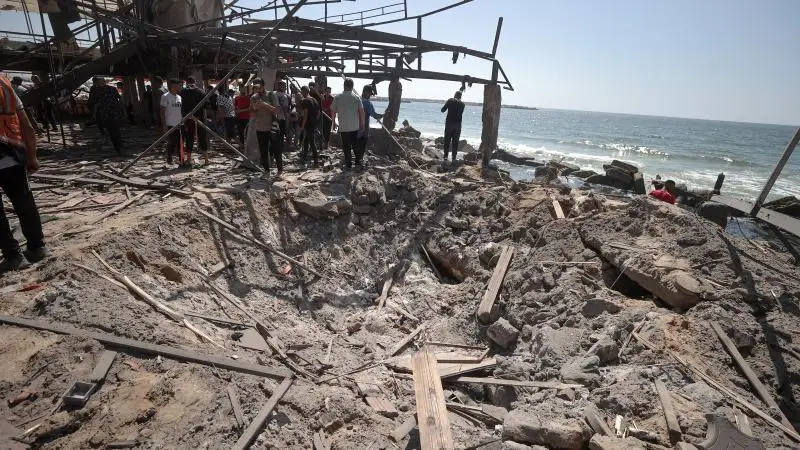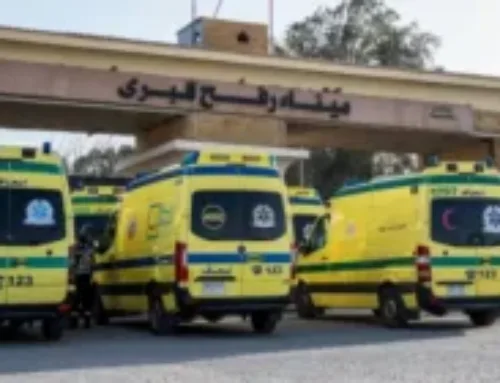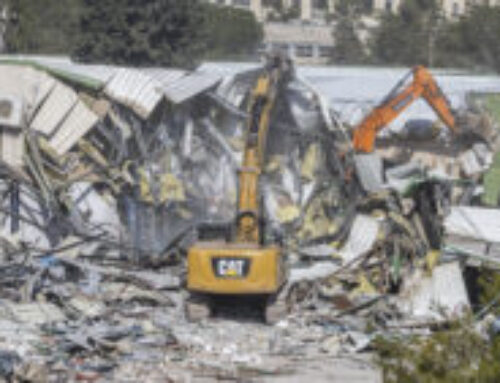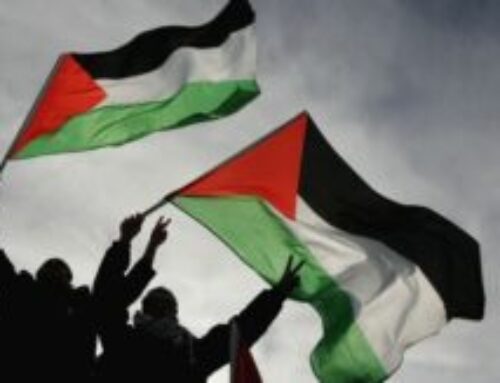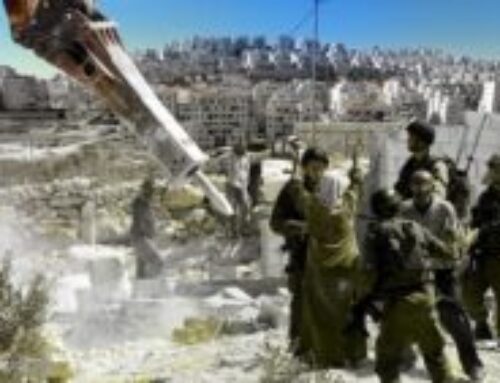In Gaza, even the seashore is no longer a refuge from death. Along the port of Gaza City, where displaced families clung to the remnants of life, the usurping entity’s bombs fell—turning the “Al-Baqa” seaside café into a scene of horror.
There were no fighters there—only youth stealing a quiet moment from the storm, journalists haunted by the country’s pain, and families sheltering under café tables from the sleepless bombardment. Then came the explosion.
In seconds, souls ascended—more than thirty martyrs, including children, women, and a journalist. The tables that once held soft laughter were now soaked in the blood of the innocents.
Gaza hadn’t even gathered its breath when the second strike came—this time, targeting tents sheltering displaced families in the very same port. Another 33 martyrs—mostly women and children. The sand was drenched in blood.
Grief Multiplies… and Famine Knocks on every Door
While the scent of blood still lingers in the air, hunger creeps in to complete the catastrophe.
The United Nations warns: one in every five Gazans is now on the brink of famine. All roads to bread are blocked, and what little food gets through isn’t enough to sustain even the pain.
The World Food Programme has sounded the alarm: 71,000 children are at risk of life-threatening malnutrition. The World Health Organization cried out: “People are dying, and the aid is just minutes away—but it’s being blocked.”
The World’s Cry Comes Late… but at least it Comes
Against this black backdrop, the official voice of the world begins to rise, albeit belatedly. UN High Commissioner for Human Rights Volker Türk described what’s happening as “unimaginable suffering,” calling for an immediate investigation into these attacks on civilians.
Doctors Without Borders used even sharper language, stating that Gaza is witnessing a “systematic policy of killing and starvation,” and described the so-called aid distribution plan led by the usurping entity and the United States as “genocide masked as humanitarian assistance.”
They reported that over 500 Palestinians have been killed and around 4,000 injured just while trying to access food.
Meanwhile, journalistic and humanitarian organizations issued their own condemnations—asserting that the targeting of civilians and media workers must be tried under international justice.

